
2025–26 Graduate Justice Fellows
In 2025–26, we welcomed our fourth cohort of fellows that represents four colleges, two schools, and ten departments around the University. The fellowship is designed to create an interdisciplinary community of graduate students committed to scholarship that engages questions of justice. The aim is to introduce young scholars from various disciplines to questions of justice in the hope that they make those a regular part of their scholarship and teaching going forward.
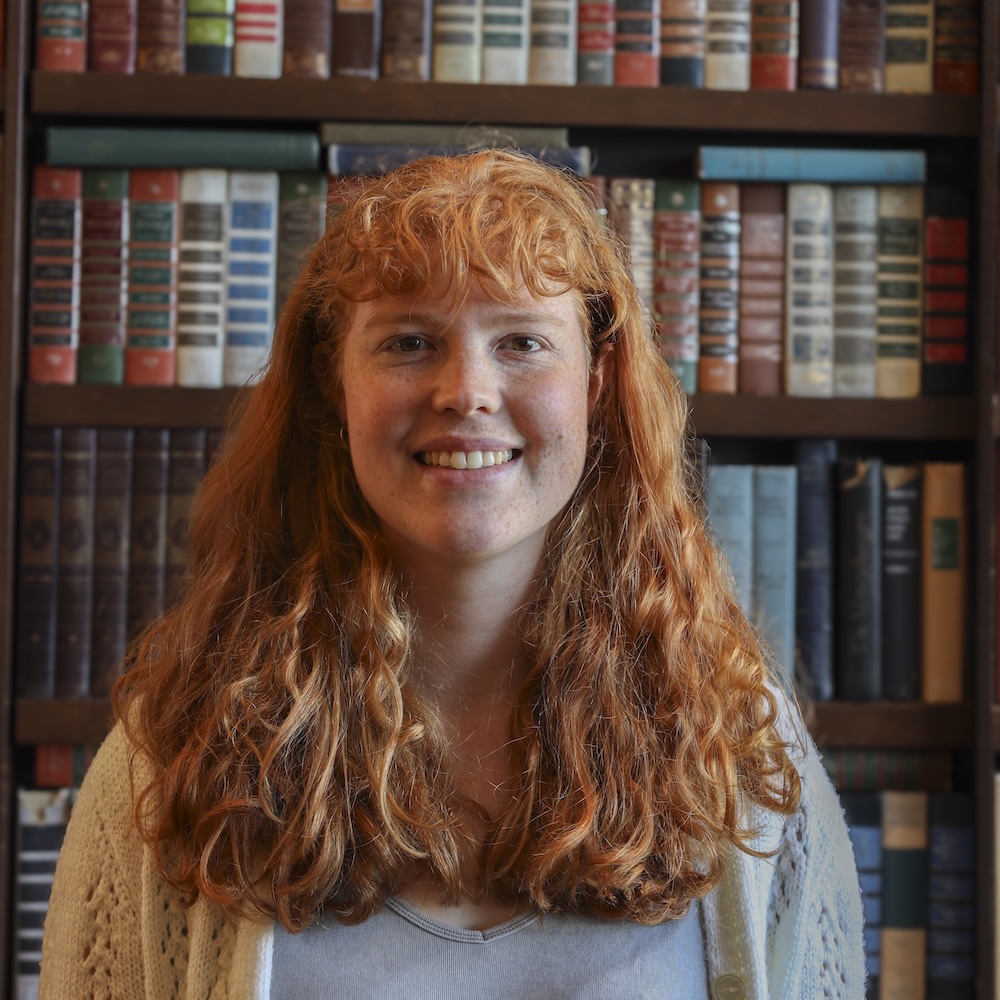
Elsa Barron
Elsa Barron (she/her) is a PhD student in peace studies and political science at Notre Dame, where her research explores demands and pathways for climate justice and reconciliation, especially those led by Pacific Island states. She is also a co-director of the Christian Climate Observers Program, which is a climate leadership development program and a collaboration between twelve faith-based environmental NGOs.
Research
Climate change is a global injustice with disproportionate impacts on communities who have done the least to contribute to the crisis, referred to as loss and damage within international policy. Building on the work of scholars characterizing environmental and climate violence, Elsa considers loss and damage as an escalating form of violence. Her research explores the application of a transitional justice process to global climate change, similar to a process of accountability and reconciliation in post-conflict societies. By engaging with the perspectives and needs of communities facing extreme forms of loss and damage, especially island nations in the Pacific, she seeks to develop a transitional justice framework that could be adopted by state parties to reconcile their role in the violence of climate change.
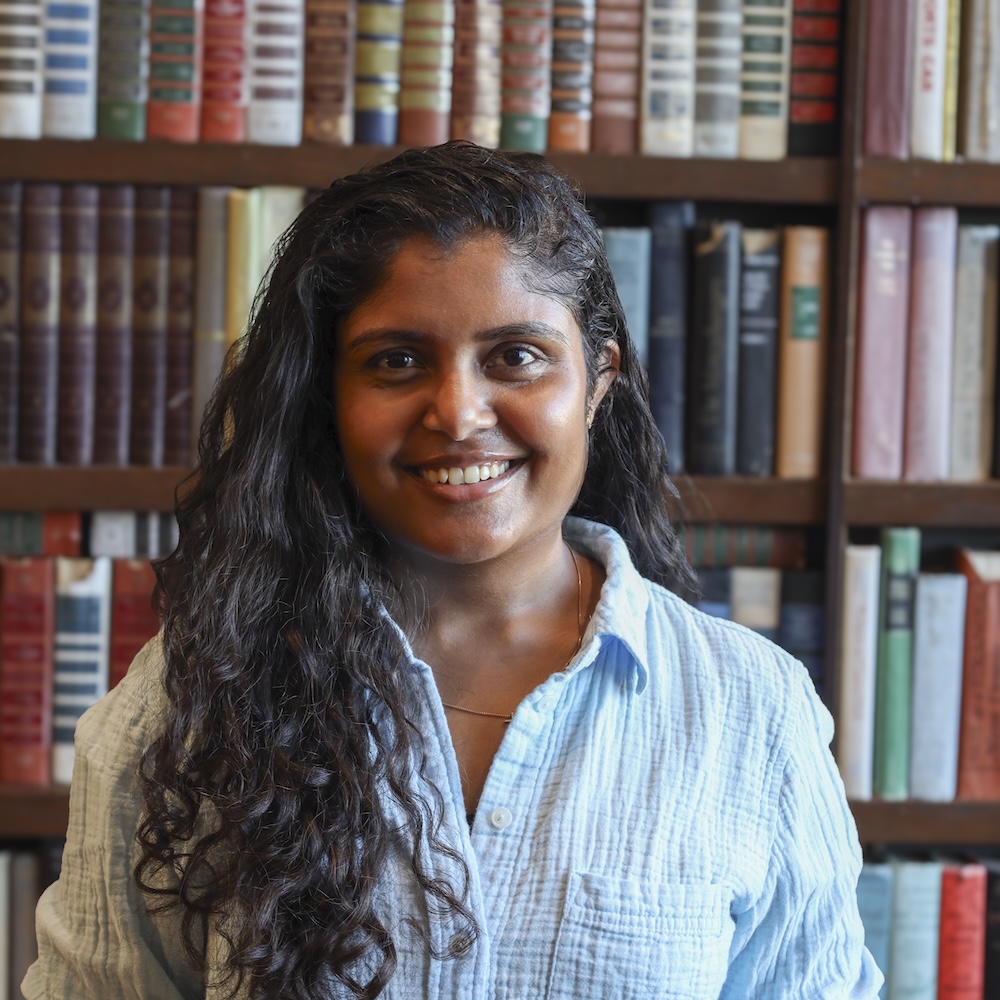
Hirudini Fernando
Hirudini is originally from Sri Lanka, where she earned a bachelor’s degree in chemistry from the University of Colombo. She is a PhD candidate in the Marya Lieberman Lab.
Research
In 2021, US drug overdose deaths tragically surpassed 100,000 for the first time. However, there is limited information about the substances present in the illicit drug supply in most communities in the United States. A major barrier to street drug testing is sample acquisition. To address this, research recently found that a variety of illicit drugs can be recovered from used fentanyl test strips (FTS). Hirudini is optimizing this drug extraction method so that the method will be suitable for targeted quantitative analysis. The data collected from this research can help track emerging drugs and trends in the drug market. This information can guide public health officials and policymakers in responding to this crisis, while also aiding the families and communities affected by the opioid crisis.

Giulia Maria Gliozzi
Giulia is a Ph.D. student in Italian studies. She holds an M.A. from Boston College and a B.A. from La Sapienza University in Rome. She earned the Teaching Excellence Award at Boston College and brings experience in museum education and community-focused humanities work.
Research
Giulia’s research addresses pressing questions of historical memory, cultural exclusion, and social justice. In a time marked by the rising silencing of marginalized voices, she focus on recovering the early testimonies of Italian Jewish women who survived the Holocaust and wrote within the first ten years after 1945. These powerful narratives, among the first literary attempts by women to articulate trauma and bear witness, remain excluded from Italy’s literary canon and broader cultural consciousness. She examines historical injustices by exposing the editorial and institutional structures that continue to marginalize narratives of trauma, resistance, and migration and seeks to redress that exclusion by amplifying voices that challenge systems of erasure and demand a reckoning with the enduring consequences of indifference and forgetting.
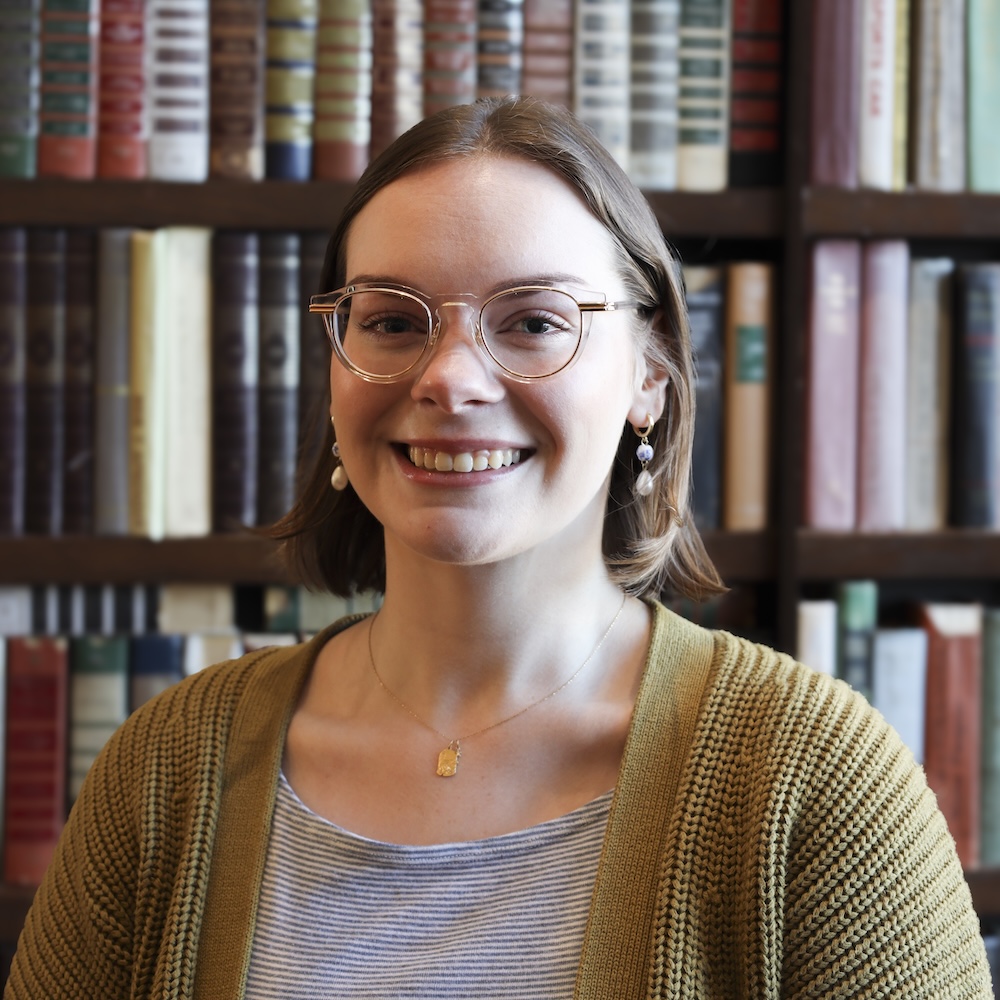
Emelia Hughes
Emelia Hughes is a Ph.D. student in computer science and engineering. She previously worked on credibility signals for YouTube and holds dual degrees in informatics and drawing & painting from the University of Washington. Outside academia, Emelia serves on the board of her undergraduate robotics team’s nonprofit.
Research
Emelia’s research examines how algorithmic systems shape visibility, identity, and collective action on digital platforms. She studies how users—particularly those marginalized or misrepresented—adapt to and resist platform logics that determine whose voices are seen and heard. Using a mixed-methods approach grounded in communication studies, HCI, and digital sociology, she analyzes sociotechnical dynamics on platforms like TikTok and Truth Social. Current projects include the “Winter Boots” trend, where users embed protest messages within commerce-driven content structures, revealing creative forms of subversive coordination. Across her work, she centers justice as both a methodological commitment and analytical lens, exploring how digital publics reclaim agency under opaque algorithmic governance and how design interventions might support more equitable, accountable online spaces.
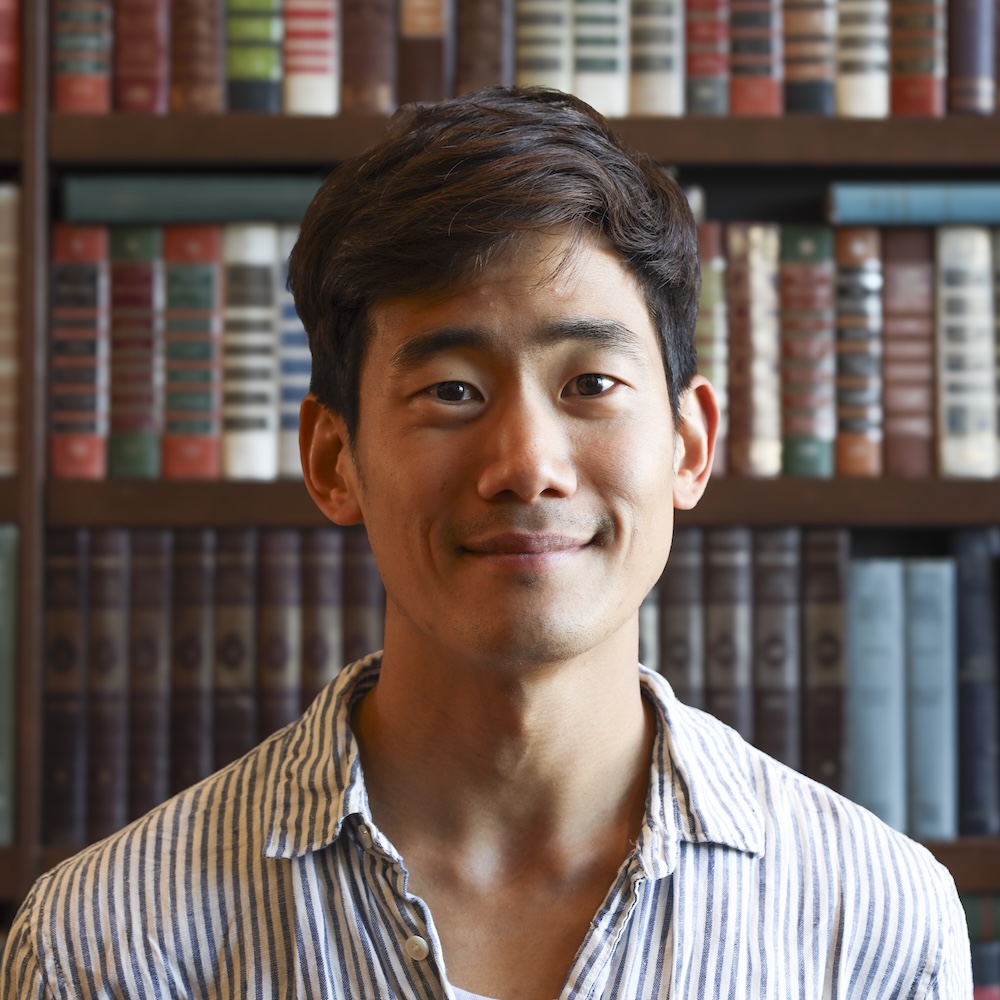
Paul Lee
Paul Kyumin Lee is a Ph.D. student in peace studies and sociology. He has worked with various peacebuilding organizations, including the Corrymeela Community, the US Institute of Peace, Seeds of Peace Camp, and the Carnegie Endowment for International Peace. Paul earned an M.Phil. in conflict resolution and reconciliation at Trinity College Dublin’s Irish School of Ecumenics and a B.A. in political science from Yale University.
Research
Paul is primarily interested in the intergenerational transmission of trauma and kinship from conflict, especially as a result of family separation and among the Korean diaspora. For his master’s thesis research, he used participant observation of an intergenerational storytelling project of Korean families in the United States to explore this question: Under what conditions are memories of the trauma and nostalgia transferred across generations in the Korean diaspora? By doing so, this study contributes to the meso-level gap between understanding the transmission of macro-level cultural trauma and micro-level psychological trauma.
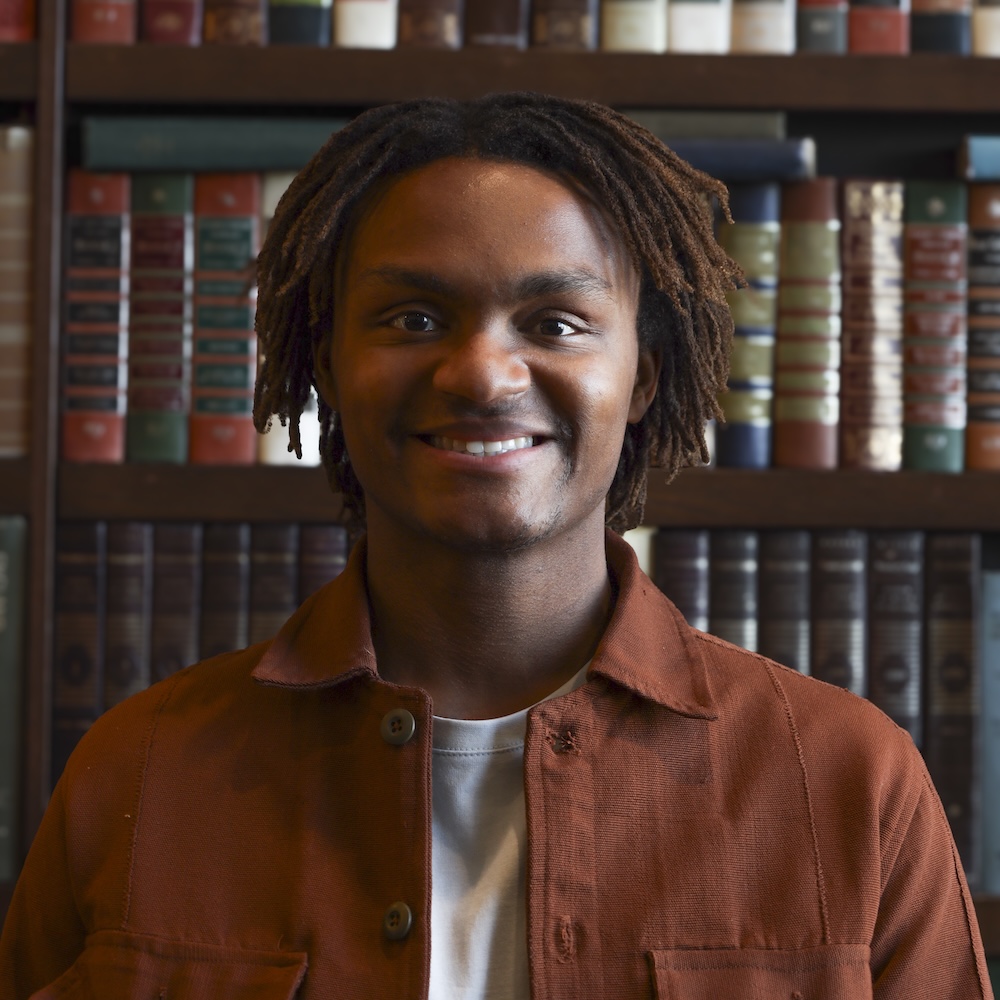
Branden Moore
Branden Moore is an MBA student from the Mendoza College of Business. He has a B.S. in management and entrepreneurship and innovation from Indiana University’s Kelley School of Business. Prior to attending Notre Dame, he worked in corporate finance at Abbott, a leading international healthcare company. Branden joined Brennan Investment Group as an asset management intern in their Chicago office this past summer.
Research
Branden’s research explores how impact-driven investment strategies can accelerate growth for Africana small and medium-sized enterprises (SMEs) across the United States and Africa. He focuses on capital deployment that advances sustainable development and economic justice. Drawing from fieldwork in Uganda and travel across the continent, he examines barriers Africana entrepreneurs face, including limited access to capital, mentorship, and technology, and proposes solutions rooted in cultural context and long-term value creation. Through the Graduate Justice Fellowship, he is deepening this work by exploring how private equity, family offices, search funds, and other investment vehicles can be reimagined to foster strong economies. His goal is to shape investment models that center shared prosperity and entrepreneurial empowerment across the global Africana community.

Dalia Mota
Dalia Mota (she/they) is a Ph.D. candidate in the sociology. Their work lies between three broad subfields within sociology: race and ethnicity, education, and gender and sexuality. She spends time thinking about belonging, inequality, and how we can make schools a better place for children. This work is informed by their background as a first-generation, low-income student from Harlem, New York.
Research
Dalia is interested in how youth draw from their experiences in high school to understand themselves and the world around them. For their master’s thesis, Dalia asked these questions: (1) Which interactions with school officials do Black LGBTQ+ youth perceive as stigmatizing? (2) How do these perceptions of stigma inform Black LGBTQ+ youth’s self-understandings and presentations of self? Dalia found that these youth self-policed the aesthetic and behavioral expressions they perceived as stigmatizing. Dalia’s dissertation project takes an ethnographic approach to ask these questions: (1) Which aspects of school matter for high schoolers’ feelings of belonging? (2) Is this relationship between school features and school belonging patterned by axes of inequality such as race, gender, or sexuality?
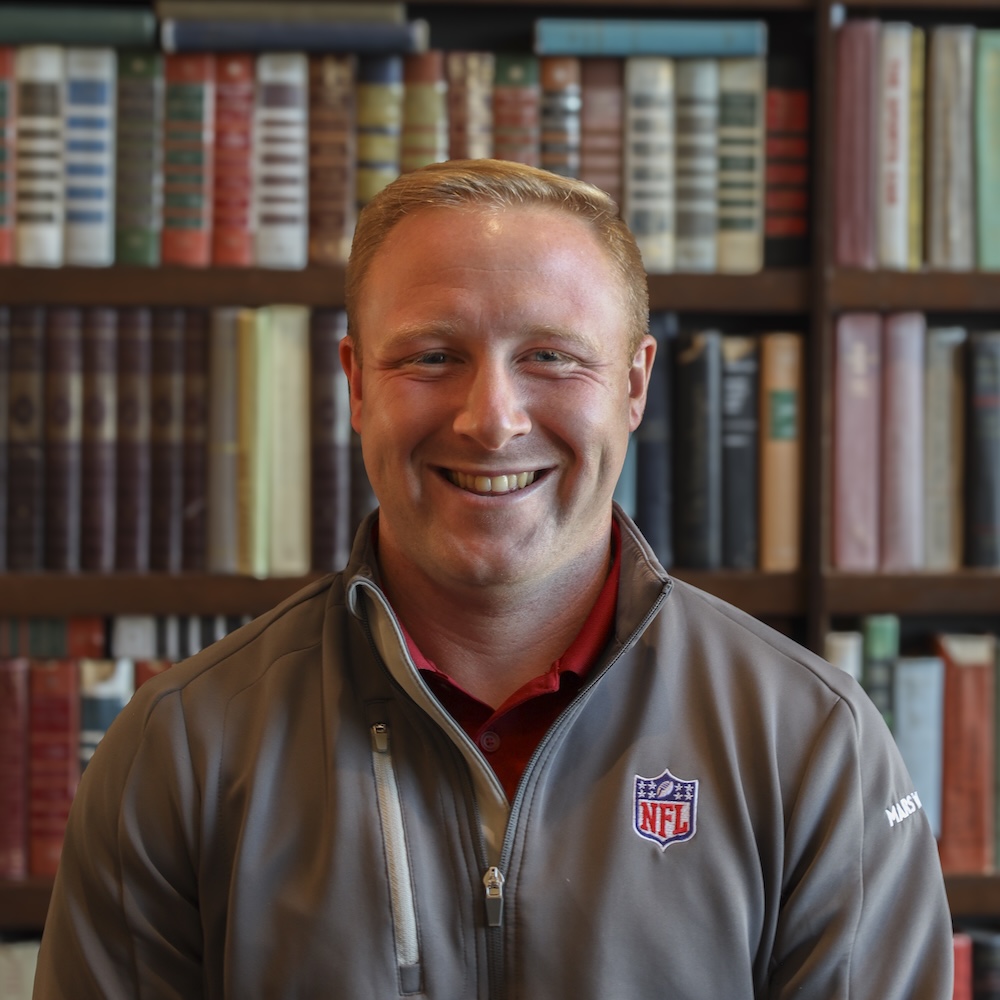
Christian “CJ” Sloan
CJ is a Ph.D. student, studying eighteenth-century military history. He graduated from West Point in 2017 with a B.S. in American History and a commission as second lieutenant. Since commissioning, he has served in the 25th Infantry Division, 82nd Airborne Division, and at the Joint Readiness Training Center. CJ is originally from New Jersey.
Research
CJ studies warfare and empire in eighteenth-century colonial North America. His research centers on how armies and societies operated and adapted during the many wars of the eighteenth century. Specifically, he is focused on the British army, the development of light infantry and ranger units, and how different warfighting experiences contributed to the creation of distinctly American and British ways of war. He also seeks to better understand in extremis leadership and how historical actors have balanced mission objectives with the rights and needs of soldiers.

Madeline Ward
Madeline is a law student from Jacksonville, Florida, who also attended Notre Dame as undergraduate. She then lived in West Virginia for two years in an intentional Catholic community called Nazareth Farm, where she did home repair, tended to a large gardens, and led service immersion retreats for high school and college students.
Research
Madeline is drawn to questions of how to keep people out of the criminal justice system and how to keep policy issues grounded in community experience. As a law student, she is interested in pursuing a career in public interest, which broadly refers to any job in the government or for a non-profit. More specifically, she wants to work in environmental justice or criminal justice spaces with an emphasis on restorative and community-based practices. She works at NDLS’s Exoneration Justice Clinic, where she is able to work with people who are wrongfully incarcerated. Previously, she worked as a research assistant for a professor in her work on police suppression of evidence in criminal cases.

Tyson Weeks
Tyson Weeks is law student. He grew up in rural North Carolina before earning a bachelor’s degree in history and English and comparative language from the University of North Carolina Chapel Hill. He has long been driven by a passion for helping others, which led him to pursue law. At Notre Dame, he is developing the skills and experiences he needs to become a public defender after graduation.
Research
Tyson came to law school with a strong commitment to public defense and systemic reform from his experience growing up in a low-income environment and seeing the impacts of the criminal justice system on those within it. At the law school, he has pursued this passion through internships at a public defender’s office, the Innocence Project London, and the ACLU of DC. These experiences taught him the crucial role of policy in advancing justice, especially regarding the right to counsel and disparities in public defense systems. Through the Graduate Justice Fellowship, he is researching inequities in legal representation at initial appearances and examining what makes public defender systems effective.
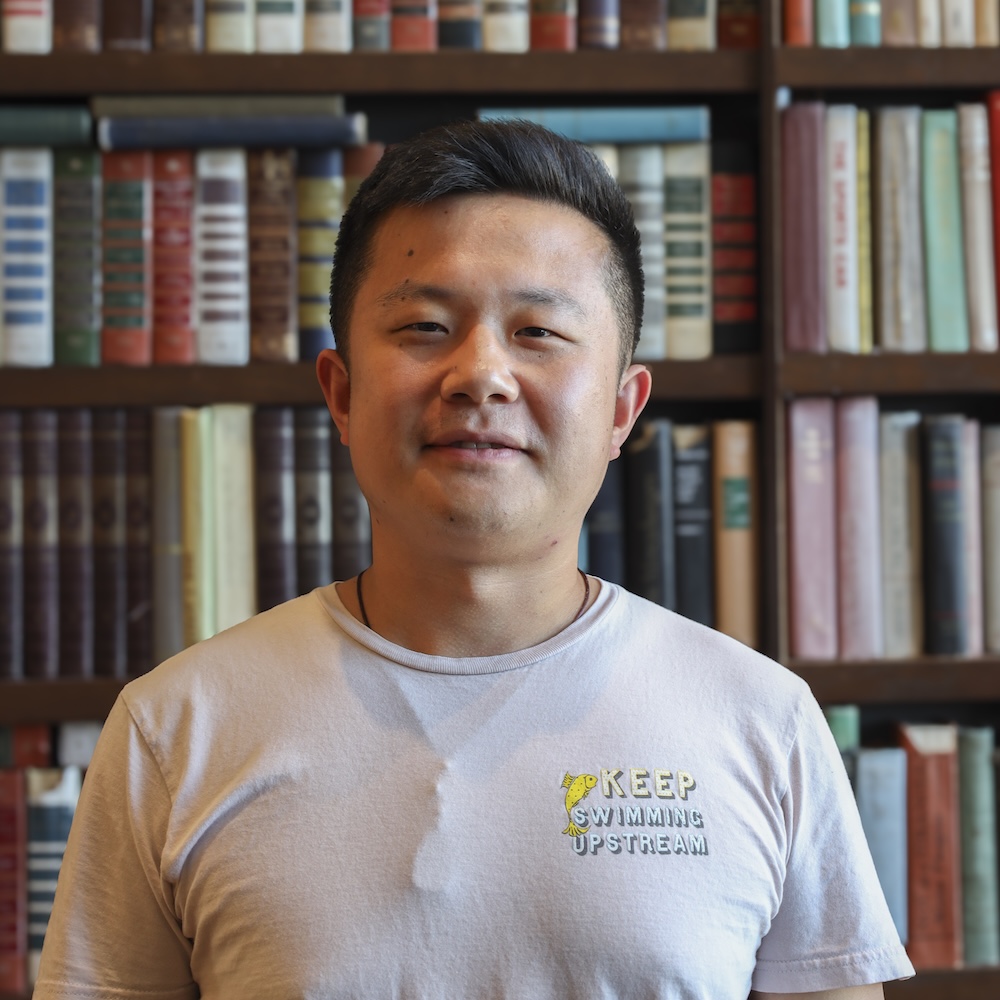
Yaning Xi
Yaning is studying pancreatic cancer in Kevin Vaughan’s lab. He received his bachelor’s degree from Troy University and master’s degrees from Troy University and Northwestern University.
Research
At Vaughan’s lab, Yaning is trying to induce cellular senescence in pancreatic cancer cells serving as an adjuvant method to treat pancreatic ductal adenocarcinoma.
